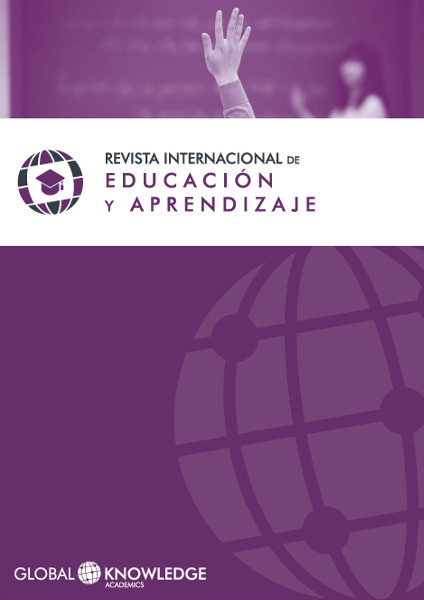CORE PLANNER: a didactic tool focused on establishing cognitive structures, for a meaningful learning process
DOI:
https://doi.org/10.37467/gka-revedu.v5.1514Keywords:
Learning, Teaching, Concept, Conceptual, Meaningful, Organizer, CoreAbstract
In this article, we introduce a student-centered tool. Its purpose is to facilitate the awareness of the student's own learning process, showing him or her the structures and conceptual networks involved in this learning process. The tool, a core planner, provides the student with a mind model to transform information into knowledge, and the prior conceptual anchors needed to assimilate this knowledge. The particularity of this organizer is that it simultaneously shows several possible levels of scaffolding: it is the student the one who chooses the level he or she needs or for which he or she is prepared for at a certain time.
Downloads
Global Statistics ℹ️
|
641
Views
|
441
Downloads
|
|
1082
Total
|
|
References
ANDERSON, R. C. (1977) “The notion of schemata and the educational enterprise: general discussion of the conference” en R. C. ANDERSON, R. J. SPIRO y W. E. MONTAGUE (eds.), Schooling and the acquisition of knowledge. Hillsdale, N. J., Erlbaum.
AUSUBEL, D.P. (1963). The psychology of meaningful verbal learning. New York, Grune and Stratton.
AUSUBEL, D. P.; NOVAK, J. D. y HANESIAN, H. (1983). Psicología educativa: un punto de vista cognoscitivo. México, Editorial Trillas. Traducción al español, de Mario Sandoval P., de la segunda edición de Educational psychology: a cognitive view.
ERICKSON, H. L. (2012). Documento de posición: Enseñanza y aprendizaje basados en conceptos, Organización del Bachillerato Internacional.
McWILLIAM, E. (2008). “Unlearning how to Teach”. Innovations in Education and Teaching International. Vol. 45, nº 3, p. 263–269. DOI: https://doi.org/10.1080/14703290802176147
MILLER, G. A. (1956). “The magical number seven, plus or minus two: some limits on our capacity for processing information”. The psychological review, vol. 63, pp. 81-97. DOI: https://doi.org/10.1037/h0043158
MOREIRA, M. A. y SOUSA, C. M. S. G. (1996). “Organizadores prévios como recurso didático”. Porto Alegre, Brasil, Instituto de Física de la UFRGS, Monografías del Grupo de Enseñanza, Serie Enfoques Didácticos, nº 5.
PAIVIO, A. (1986) Mental representations. Oxford, Oxford University Press.
Downloads
Published
How to Cite
Issue
Section
License
Those authors who publish in this journal accept the following terms:
-
Authors retain copyright.
-
Authors transfer to the journal the right of first publication. The journal also owns the publishing rights.
-
All published contents are governed by an Attribution-NoDerivatives 4.0 International License.
Access the informative version and legal text of the license. By virtue of this, third parties are allowed to use what is published as long as they mention the authorship of the work and the first publication in this journal. If you transform the material, you may not distribute the modified work. -
Authors may make other independent and additional contractual arrangements for non-exclusive distribution of the version of the article published in this journal (e.g., inclusion in an institutional repository or publication in a book) as long as they clearly indicate that the work was first published in this journal.
- Authors are allowed and recommended to publish their work on the Internet (for example on institutional and personal websites), following the publication of, and referencing the journal, as this could lead to constructive exchanges and a more extensive and quick circulation of published works (see The Effect of Open Access).













